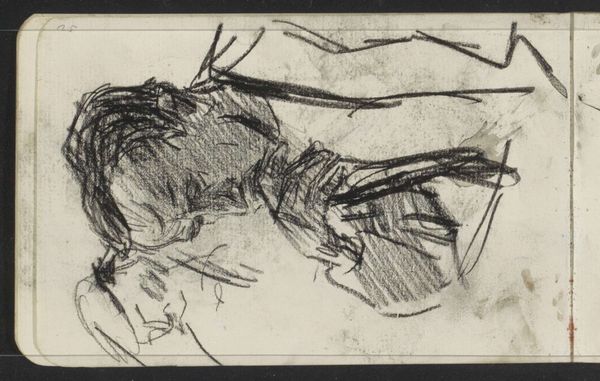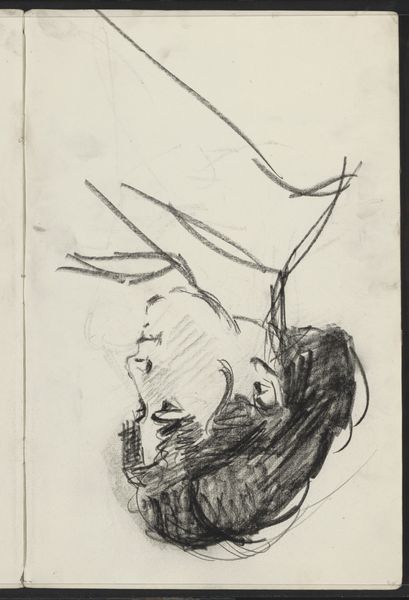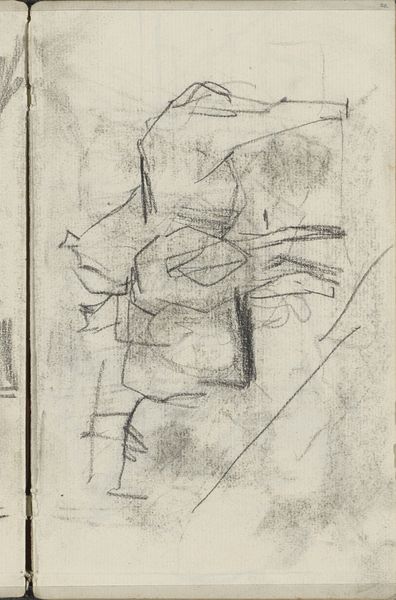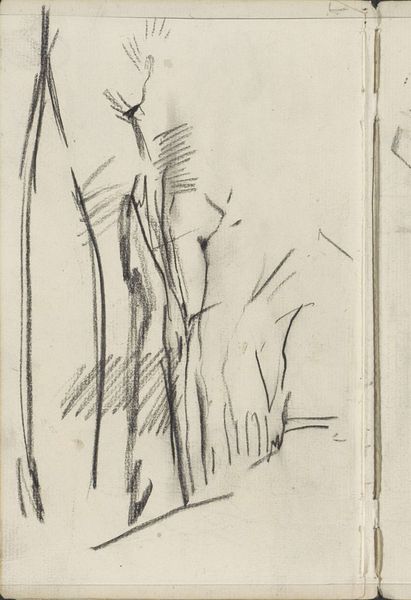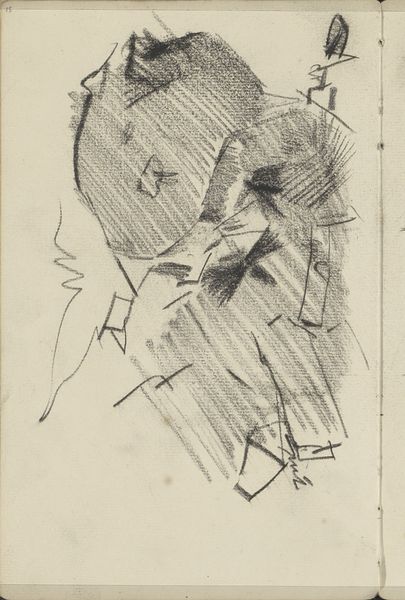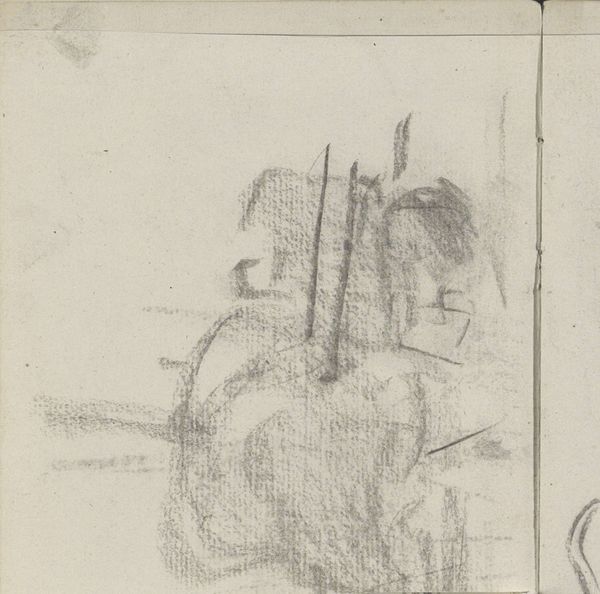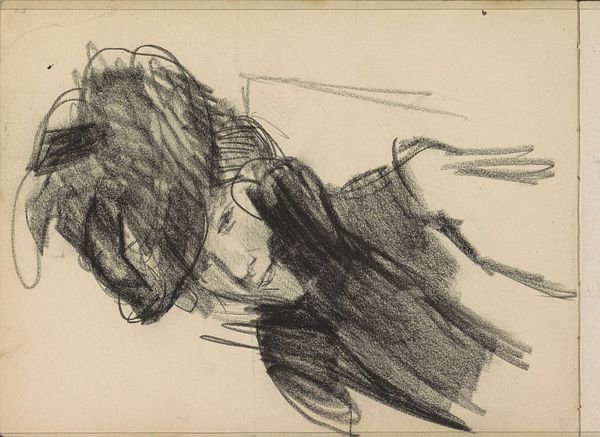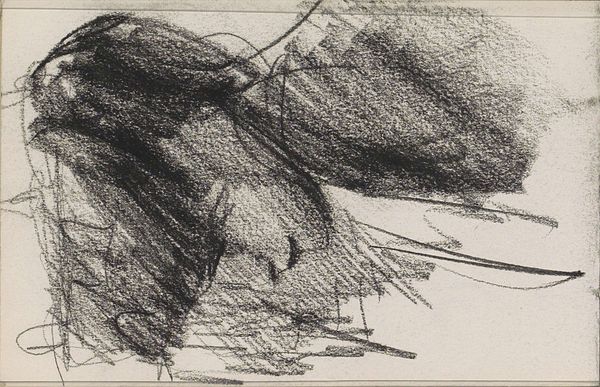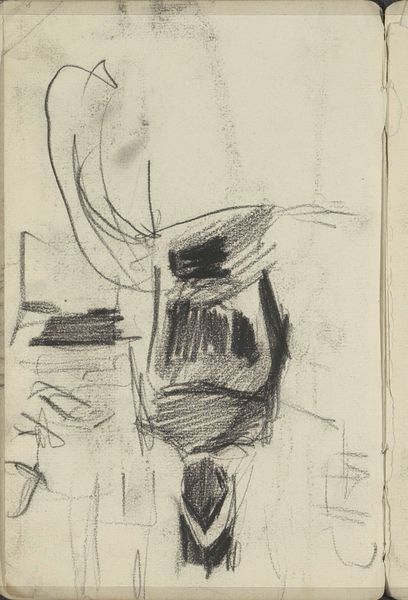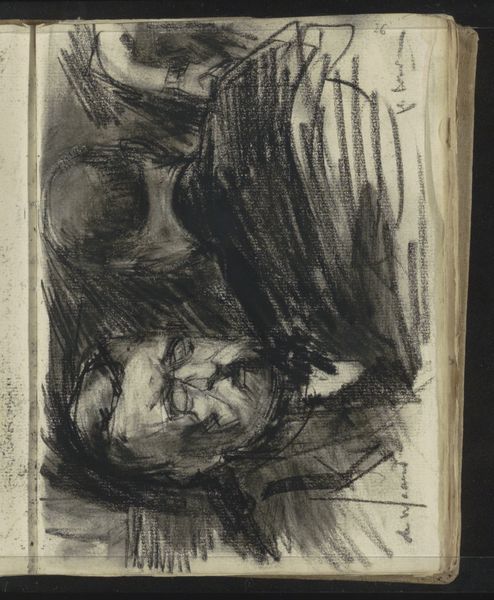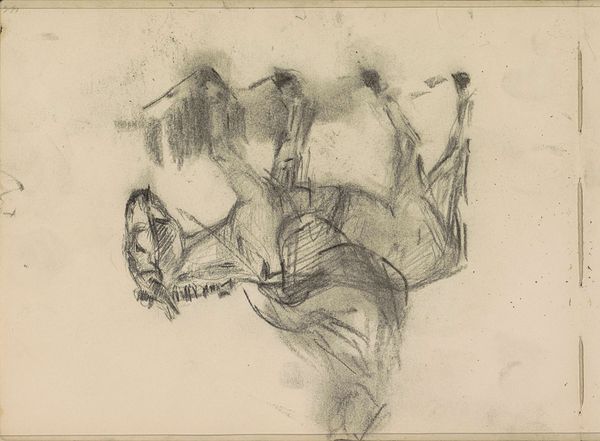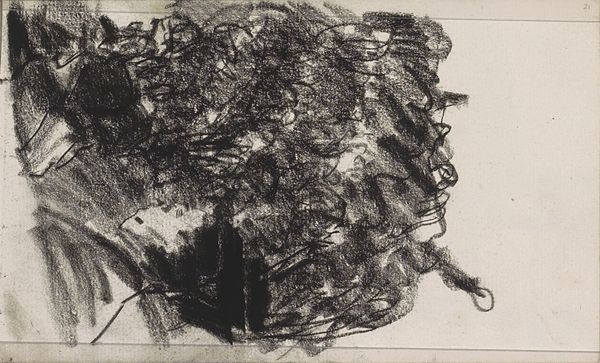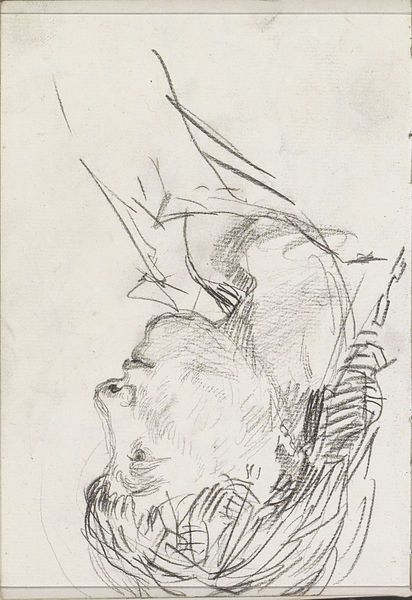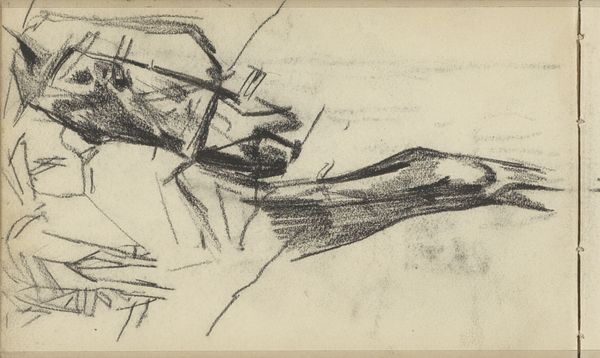
Copyright: Rijks Museum: Open Domain
Curator: Isaac Israels created this sketch, titled "Vrouwenhoofd," sometime between 1886 and 1903. It's a graphite drawing, an evocative example of impressionistic portraiture here in the Rijksmuseum. What strikes you first? Editor: Rawness. It’s like catching a fleeting thought. Graphite captures that perfectly—smoky, urgent. Does she look…troubled? Curator: There's a sensitivity to it. Considering Israels' focus on capturing modern life, we can contextualize this within the rapid urbanization and shifts in social roles for women at the time. This isn't just a portrait, but perhaps a commentary on the changing female identity. Editor: True. It's like he's x-raying the *idea* of her, all nervous energy. You feel the woman behind the sketch—the one the artist’s wrestling to put down on paper. All those anxious marks…it reminds me of charcoal drawings by Käthe Kollwitz, capturing the anguish of women in society. Curator: Absolutely. The unfinished quality invites the viewer to participate in the interpretation, connecting to broader narratives of female representation and the gaze. It certainly feels connected to broader concerns explored through a feminist lens. Editor: That reminds me. Those rough lines that form her face; you can practically smell the lead. It’s gorgeous but haunting. I feel the charcoal in my fingertips and then a chill runs down my spine. Curator: I appreciate your visceral response. The intentional blurring of lines serves as a visual metaphor, challenging conventional portraiture, inviting discussions about the essence versus the depiction. We are clearly meant to think about context here. Editor: It's strange to connect to such a rudimentary rendering and yet I do. To encounter art like this pulls me out of myself. Israels' ability to translate mood and texture and, well, pure vulnerability using seemingly minimal means. Wow. Curator: His work consistently asks us to question societal frameworks, through the intimate rendering of individual stories. It is a profound engagement that really delivers even after more than a century. Editor: Precisely.
Comments
No comments
Be the first to comment and join the conversation on the ultimate creative platform.
